What is Data Science?
In the modern digital era, data is at the heart of every business that relies on the use of technological solutions to boost customer experience and increase revenue. The decision-making process has changed after the advent of data science. Businesses no longer work on assumption; they are using complex data analysis to obtain valuable insights about the market and consumers. So what exactly is data science and how does it work to further business objectives?
Well, data science can be simply explained as a discipline that deals with data collection, structuring and analysis. It involves the use of the scientific process and algorithms to obtain valuable insights from seemingly irrelevant pieces of information. Big data is at the centre of data science. Let’s delve deeper into why you should consider learning data science.
Why Learn Data Science?
The demand for data science professionals is ever increasing as more and more companies are deploying data science to obtain deeper insights.
 The demand for data science course online is also growing as more individuals are lured in towards the lucrative career prospects offered by this industry. There are numerous reasons to learn data science in the contemporary landscape.
The demand for data science course online is also growing as more individuals are lured in towards the lucrative career prospects offered by this industry. There are numerous reasons to learn data science in the contemporary landscape.
The first and foremost is the outstanding remuneration offered to data science professionals. This is partly because data science is still in its nascent stage and there is a scarcity of trained professionals in this industry.
However, the demand for data science professionals by companies is on an upward trend.
In addition to this, the role played by data science professionals is very crucial for businesses as it involves analysing valuable company data to obtain insights and make predictions regarding the market.
Let’s explore how you can easily get trained for data science online.
Resources to Learn Data Science Online
Online learning is the new norm, the benefits of this method of learning is enormous. Moreover, the online courses are designed in such a way that it caters to specific training needs of individuals and there is no irrelevant content included in the courses. It is also feasible for people who are already working at a job and have limited time to learn a new subject. Here are a few resources that can help you learn data science online with ease and in a limited budget.
Google’s Machine Learning Crash Course
The machine learning technology is being extensively used by companies to cater to a growing audience base. Google’s Machine Learning Crash Course is designed for everyone; it doesn’t require you to have any prerequisite knowledge regarding the subject. Even people who have some knowledge in the field can opt for this course as it focuses on important concepts like loss functions, gradient descent, etc.
In addition to this, you will also learn about presenting algorithms from linear regression models to neural networks. The course learning materials include exercises, readings, and notebooks with actual code implementation using Tensorflow.
In addition to this crash course, you will also have access to a plethora of learning materials on data science and AI. These learning materials include courses, Practica, Guides and Glossary.
Imarticus Learning’s Data Science Prodegree
If you are looking to make a professional career in the field of data science then the data science course offered by Imarticus Learning is surely the best way to learn data science. The best thing about this course by Imarticus is that the knowledge partner for this course is KPMG.
This data science course takes a comprehensive approach towards learning data science and covers topics such as R, Python, SAS Programming, Data visualisation with Tableau, etc.
Data Science And Machine Learning Course with iHUB DivyaSampark @IIT Roorkee
Data science is a competitive field and to be successful you need to master the foundational concepts of data science. Imarticus Learning has created a 5-month data science program with iHUB DivyaSampark @IIT Roorkee. It will equip you with the most in-demand data science skills and knowledge that will help you to pursue a career as a data scientist, business analyst, data analyst and data manager. It features a 2-day campus immersion program at iHUB Divyasampark @IIT Roorkee and is delivered by top IIT faculty through live online training. Through this program, you will also get an opportunity to showcase your startup idea and get funding support.
In addition to this, the course trains individuals using industry sneak peeks, case studies and projects. The capstone projects allow individuals to work on real-world business problems in the guidance of expert project mentors. Upon the successful completion of this course, you will also receive a certification by Imarticus learning in association with Genpact. In addition to all this, you will receive interview preparation guidance and placement assistance.



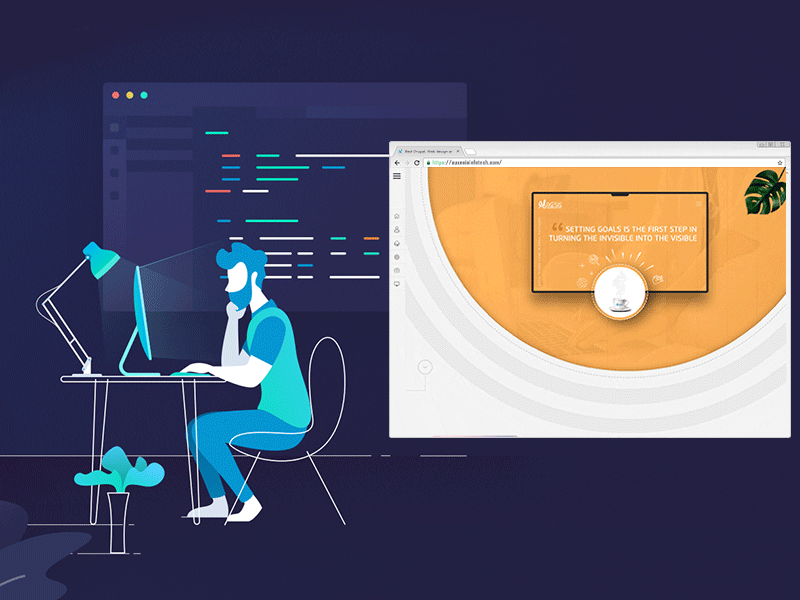

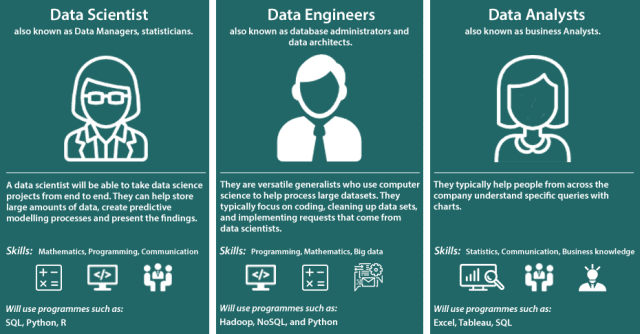


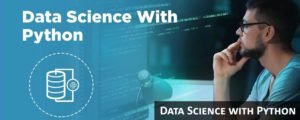 Data Scientists are the programmers who do these tasks for the organizations. Data Scientists gather a large quantity of data and convert it into a useful form, followed by recognizing data-analytics solutions for organizational growth.
Data Scientists are the programmers who do these tasks for the organizations. Data Scientists gather a large quantity of data and convert it into a useful form, followed by recognizing data-analytics solutions for organizational growth. The entry level salary of a Data Scientist is approximately INR 500,000 per annum (Source:
The entry level salary of a Data Scientist is approximately INR 500,000 per annum (Source:  Should know more interesting things about
Should know more interesting things about 
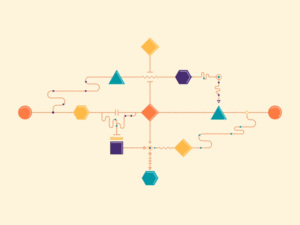 A data scientist is critical in companies like these, as they bring expertise to the table and understand the flow of projects much better than anyone else. With a data scientist at the helm, all other players in the process can fall into place. This reduces the pressure on upper management to figure out project flows; they can now leave it to the experts.
A data scientist is critical in companies like these, as they bring expertise to the table and understand the flow of projects much better than anyone else. With a data scientist at the helm, all other players in the process can fall into place. This reduces the pressure on upper management to figure out project flows; they can now leave it to the experts. This is an invaluable opportunity for fresh data scientists as the company takes care of all the costs and only asks for your attention and application in exchange. Adding a
This is an invaluable opportunity for fresh data scientists as the company takes care of all the costs and only asks for your attention and application in exchange. Adding a 
 An imbalanced dataset is a typical example of unbalanced data. Let us see how to use the Near-Miss Algorithm for imbalanced datasets.
An imbalanced dataset is a typical example of unbalanced data. Let us see how to use the Near-Miss Algorithm for imbalanced datasets.
 This is an interesting and highly practical way to gain real-life
This is an interesting and highly practical way to gain real-life 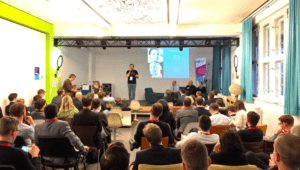 These events are excellent venues for networking with like-minded professionals who work for a range of different organizations. A simple Google search with keywords like Data Science meetups, along with the name of your city, will generate information about ongoing or upcoming events near you.
These events are excellent venues for networking with like-minded professionals who work for a range of different organizations. A simple Google search with keywords like Data Science meetups, along with the name of your city, will generate information about ongoing or upcoming events near you.
 One of the most basic and key responsibilities of data scientists in an organization is to identify existing challenges and problems that a business is facing and finding solutions to remedy the situation. This might seem like a generic responsibility of every important professional but the main difference here is that data scientists use tons of relevant data to find the problem.
One of the most basic and key responsibilities of data scientists in an organization is to identify existing challenges and problems that a business is facing and finding solutions to remedy the situation. This might seem like a generic responsibility of every important professional but the main difference here is that data scientists use tons of relevant data to find the problem. The 21st Century businesses are complex than ever, there are various factors that determine the fate of an organization. With the number of complexities that exist, it’s very difficult to figure out what impacts your business and how it does that.
The 21st Century businesses are complex than ever, there are various factors that determine the fate of an organization. With the number of complexities that exist, it’s very difficult to figure out what impacts your business and how it does that. Data science is one of the most in-demand skills in the industry and given the wide range of applications that it has, the demand for a
Data science is one of the most in-demand skills in the industry and given the wide range of applications that it has, the demand for a